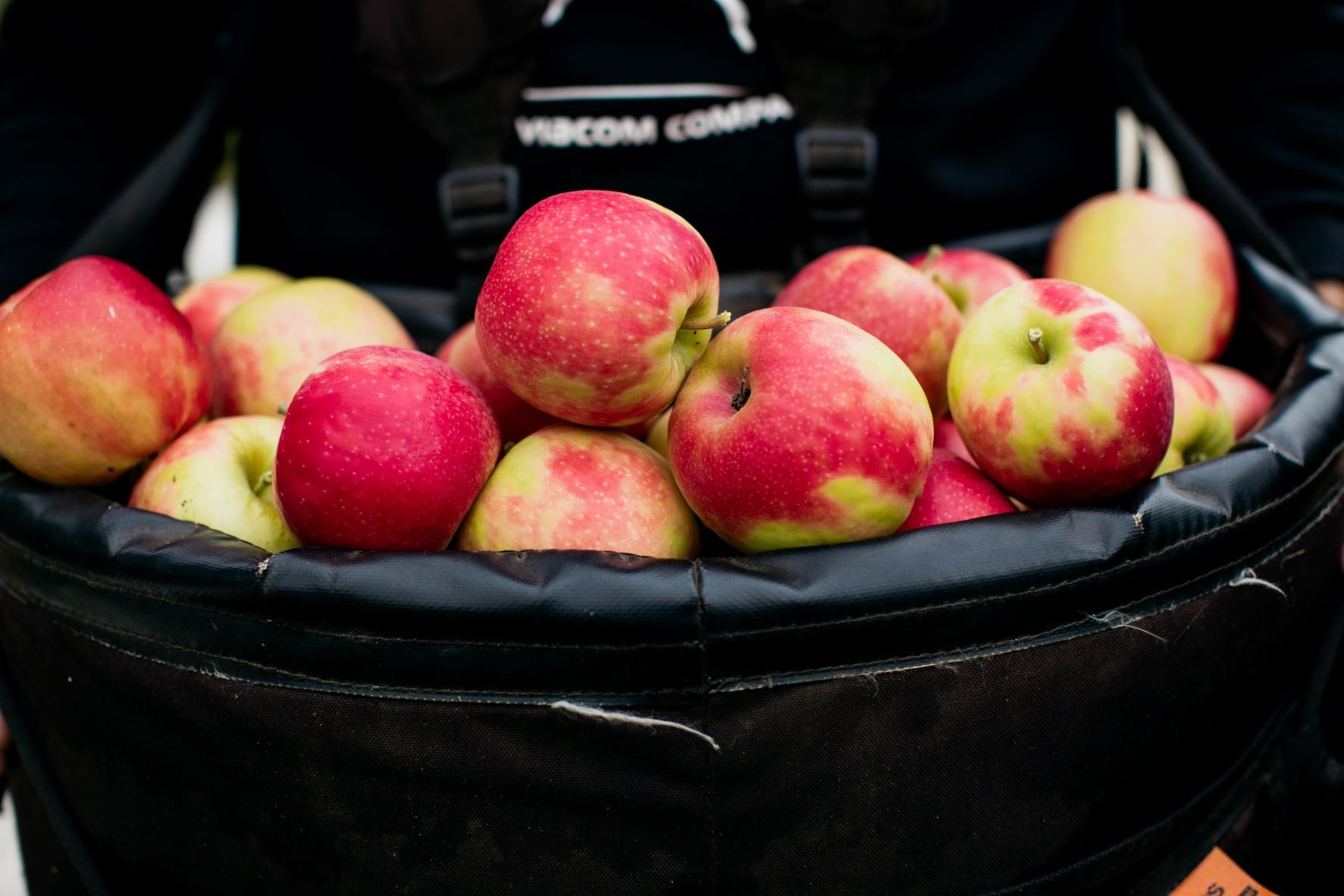
In 2023/24, Western Australian apple production was 21,853 tonnes.
This equates to 600 hectares of planted apple trees, assuming each hectare produces 36 tonnes. The industry is worth approximately $64m wholesale and $104m final sale.
Data sourced from the Agricultural Produce Commission
In the 2023-24 season, WA produced 10% of the national apple production. There are approximately 100 apple growers in Western Australia.
The Manjimup/Pemberton Region produces 69% of the apples from 24 growers, Donnybrook produces 15% from 27 growers Perth Hills 15% from 47 growers.
58% of the production comes from small family-owned orchards producing less than 1,000 tonnes of apples per year per orchard.
In 2023/24 Western Australian pear production was 4,153 tonnes produced from 62 growers.
More pears are grown in Donnybrook, 72% followed by Perth Hills, 23%, and Manjimup, 5%
The national pear production was 92,450 tonnes, of which only 7% came from Western Australia in 2020-21 (APAL ABS statistics).
Nashi Production for 2023/24 was 42 tonnes from eight growers
30 tonnes from Donnybrook from five growers.
Apple varieties
The most popular apple varieties grown in WA include Pink Lady, Granny Smith and Gala. Increases in production were reported for Gala and Bravo as more trees have been planted in recent years.
Pear varieties
Most popular pear varieties grown in WA include Packham and Williams with some of the new varieties like Buerre Bosc, Corrella and Josephine increasing in production.
Biosecurity
The Western Australia apple and pear industry faces ongoing biosecurity issues that challenge orchard profitability and access to national and international markets.
The Plant Health Australia Orchard Biosecurity Manual for the Apple and Pear industry contains information to help producers to implement biosecurity on-farm.
The orchard biosecurity manual includes an overview of biosecurity, fact sheets to identify the high priority pests for apples and pears, tips on pome fruit management and how to manage people, vehicles and equipment to minimise biosecurity risks.
The manual also contains a biosecurity self-assessment list and templates to record pest surveillance records and visitors. A copy of the manual can be found on the Plant Health Australia website.
The Western Australian industry via Pomewest has adopted a pro-active approach to protecting the industry by implementing a Biosecurity Fee for Service Levy (BFFSL) under the Agricultural Produce Commission Act 1988. The BFFSL rate is presently set at $0.002 per kilogram on all fresh pome fruit and $0.001 per kilogram on all processed pome fruit. The BFFSL commenced on 1 January 2015.
A Biosecurity Strategic Plan has been developed to work in conjunction with the APC Pome biosecurity Fee for Service (FFS) charge. The WA Pome Fruit Grower’s Biosecurity Fund document defines the rules of expenditure for the biosecurity FFS and aligns with the Plan’s four strategic investment areas.
Protect industry against exotic plant pests and disease
Address threats from established pests in Australia but not present in WA
Support industry management and control of established pests of quarantine concern
Strengthen orchard and property biosecurity
Orchard Biosecurity Manual
for the Apple & Pear Industry

Pomewest Committee
The Pomewest committee has been appointed by the APC.
Meet the Committee, comprising individual growers from different production areas, who work to represent the interests of the FFS payers of the WA apple and pear industry.
Pomewest Staff
Meet our staff members
Introducing the Pomewest Team, dedicated individuals committed to offering support to apple and pear growers in Western Australia.
















